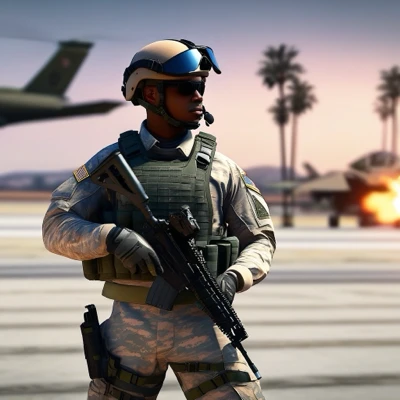Top 10 Mistakes Service Members Make When Facing Article 120 Charges
Gonzalez & Waddington, Attorneys at Law represent service members worldwide accused of Article 120 sexual assault, Article 120c indecent conduct, and related UCMJ sex offenses. Facing a sexual assault charge is overwhelming, and many service members unintentionally make mistakes that damage their defense. This guide highlights the top 10 mistakes to avoid when accused under Article 120.
The Top 10 Mistakes to Avoid
1. Talking to Investigators Without a Lawyer
Agents (CID, OSI, NCIS, CGIS) are trained to lock you into statements that can be twisted against you.
Fix: Politely invoke your right to counsel. Do not give a statement without legal advice.
2. Contacting the Accuser
Attempting to explain or reconcile often backfires. Any contact can be seen as witness tampering or intimidation.
Fix: Cut all direct communication. Let your attorney handle any contact.
3. Posting on Social Media
Even innocent posts can be spun as “consciousness of guilt” or harassment. Screenshots live forever.
Fix: Lock down your accounts. Stop posting until the case is over.
4. Assuming Your Record Will Save You
A spotless service record helps, but Article 120 cases often come down to one allegation vs. one defense.
Fix: Build a case with evidence, witnesses, and experts—not just reputation.
5. Waiting Too Long to Hire a Civilian Lawyer
Military defense counsel are often skilled but overloaded. Civilian lawyers add time, resources, and specialized sex-crime expertise.
Fix: Retain a civilian lawyer experienced in Article 120 immediately.
6. Ignoring Digital Evidence
Texts, DMs, call logs, and photos often prove consent or ongoing friendliness after the alleged incident.
Fix: Preserve all digital communications. Don’t delete anything; deletions can look suspicious.
7. Overlooking Forensic Evidence
SANE exams, DNA, and toxicology are not infallible. Many defense teams fail to challenge weak or inconclusive science.
Fix: Retain forensic experts (toxicologists, psychologists, DNA specialists) to review government science.
8. Testifying Without Preparation
Testifying may help, but if you’re unprepared, cross-examination can sink you.
Fix: Only testify if strategically beneficial and rehearsed with your lawyer.
9. Hoping the Case Will Go Away
Once allegations hit command, they rarely “disappear.” Delaying preparation gives the government an advantage.
Fix: Start building your defense from day one. Waiting is not a strategy.
10. Not Preparing for Collateral Consequences
A conviction can mean sex offender registration, loss of benefits, and dishonorable discharge.
Fix: Address collateral consequences early with mitigation, character witnesses, and sentencing strategy.

Smart Moves That Strengthen Your Defense
- ✔ Invoke your right to remain silent and ask for counsel.
- ✔ Retain an experienced civilian lawyer early.
- ✔ Collect, preserve, and organize digital and physical evidence.
- ✔ Prepare witnesses who can testify about your integrity and the accuser’s credibility.
- ✔ Hire experts to challenge forensic and psychological evidence.
- ✔ Build a cohesive theory of defense that explains the accuser’s motives and inconsistencies.
Video: Mistakes to Avoid in Article 120 Cases
We Defend Article 120 Cases Nationwide
The biggest mistake is going in unprepared. Our team has defended hundreds of Article 120 cases, dismantling false allegations and exposing weak government evidence. Don’t let mistakes cost you your freedom and career.
Gonzalez & Waddington — ucmjdefense.com — 1-800-921-8607
FAQs: Article 120 Mistakes
Should I talk to CID or NCIS if I’m innocent?
No. Even innocent statements can be twisted. Always demand counsel first.
Can texts really help my case?
Yes. Messages often prove consent, friendliness, or contradictions in the accuser’s timeline.
Do I need a civilian lawyer if I already have a military one?
Yes. Military counsel may be overworked; civilian lawyers bring sex-crime defense specialization and extra firepower.
What if the accuser regrets a consensual hookup?
Consent at the time matters. Digital evidence and witnesses can prove regret ≠ assault.
What happens if I’m convicted?
You risk prison, dishonorable discharge, sex offender registration, and permanent loss of benefits.


